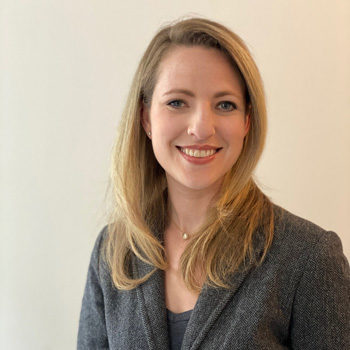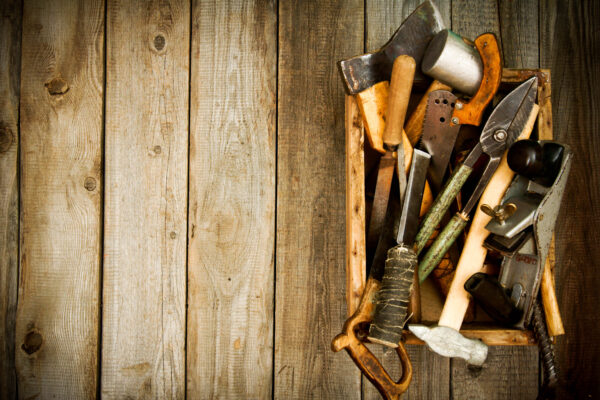“That’s so nice.”
When I tell people about our work at Einhorn Collaborative — a foundation dedicated to addressing America’s growing crisis of connection — I often receive this response. The implied subtext is, “That’s all well and good, but how are you actually changing people’s lives?”
In America, polarization, social isolation, and “othering” have reached a generational high. We increasingly sort ourselves into like-minded groups, shunning those who don’t think, look, act, pray, or vote like us. Such division has meant many Americans no longer trust those on the “other” side. Without trust, it’s harder to extend care and compassion and it also becomes much easier to harbor contempt. As a result, we can quickly find ourselves on one side of the chasm with no bridge to the other.
Since I started doing this work, I’ve engaged with numerous people who are skeptical that addressing this crisis of connection can actually help alleviate other, bigger challenges facing our nation, like economic inequality, structural racism, climate change, and the protection of voting rights. However, I’ve come to believe — through partnering with some of the most remarkable leaders and organizations on the ground helping Americans bridge our divides — that effectively addressing those challenges requires creativity and compromise.
Unless there are “bridgers” — people who have the motivation, mindset, and skills to help others navigate divides and work together — we will continue down this path of “othering” and dehumanization. And that’s when I really start to worry: to what end?
Whatever your philanthropic focus, the case I would make to those who are skeptical of the value of bridging is that intentionally bringing together diverse leaders and funders who have different priorities, worldviews, and theories of change to focus on shared interests will no doubt help heal our culture of divisiveness and deliver better outcomes.![]() Put another way, solving our most complex social problems becomes much harder if we don’t see, hear, and understand each other first.
Put another way, solving our most complex social problems becomes much harder if we don’t see, hear, and understand each other first.
What’s at stake if we don’t?
When it comes to the power and possibility of bridging our divides, my guide and role model is Professor john a. powell, Director of the Othering & Belonging Institute at UC Berkeley. (If you’ve not had the chance to engage and enjoy Professor powell’s work, I encourage you to learn directly from him in this talk). I’ll never forget the first time I met Professor powell, before the pandemic, in a beautiful hybrid plant nursery-coffee shop near campus. Soft spoken, with the kindest eyes, powell and I discussed the possibilities of bridging our divides in an increasingly divided society, and specifically what the role of philanthropy could be in doing so.
As he took a sip of his coffee, powell immediately framed the consequences in stark terms: “If we don’t stop othering each other and instead focus on building a world of belonging,” he said, “it could mark the end of our species.” “Oh, just that?” I responded, with a nervous laugh.
And yet, over the last few years, I’ve come to agree; the threats and challenges we face are real and dire — and attempting to solve them amidst so much hostility and vitriol is unlikely to succeed.
For too long now, we’ve convinced ourselves of a simple and depressing story. Humans are animals destined to divide and demean one another. Having all read Lord of the Flies in high school, we’ve been inculcated with the seductive power of our darker demons over our better angels. And yet, that story is a true fiction. Rutger Bregman, the author of Humankind: A Hopeful History, has analyzed and compiled the results of more than 700 studies on human behavior that show all of the ways humans are naturally inclined towards kindness. Bregman even goes so far as to find five real boys from Tonga who were shipwrecked on an island after running away from their boarding school together. Instead of turning on one another, they survived through collaboration, kindness, and compromise for close to a year before being rescued, a real-life Lord of the Flies with a very different ending.
As I read Bregman’s book, and this story in particular, I had to push myself to unlearn the pervasive myth I had come to believe about human nature. Is it possible the opposite is true? And if it is, what is required of us to shift our culture to be one that reflects our real nature? And what is preventing us from doing so?
Whether you are persuaded by stories or data, Bregman’s book is one of the best I have encountered at helping to underscore the importance of shifting the narrative. What we believe dictates what we do. If we believe humans will always devolve into their worst behavior towards one another, we fail to look for the best in ourselves and each other.
Bridging divides takes intention — and practice.
john powell is also quick to remind us that it’s okay to be hard on institutions, but we must be soft on people. I have learned from personal experience how hard it is to hate up close. To create the opportunity for mutual understanding and trust, we have to create spaces that allow us to be fully human with one another. And we have to appreciate that trust and understanding take time. Online forums and social media, filled with instant trigger responses, are likely to aggravate our worst tendencies. We must recognize this work requires a different speed, a different intention, and a different container. And philanthropy — given its inherent privilege — is in a position to set the tone and create the space to change the narrative.
In 2020, we helped launch New Pluralists, a purposefully cross-ideological funder collaborative designed to strengthen a culture of pluralism in America. Through New Pluralists, I’ve had the chance to experience that kind of space myself, getting to know and work closely with Sarah Ruger, the director of free speech and peace at the Charles Koch Institute, and her colleague Brian Hooks, the CEO and Chairman at Stand Together. Five years ago, I don’t think I would have imagined or anticipated the proximity and importance of my relationship with Brian and Sarah, which plenty of my more progressive colleagues in philanthropy have questioned. Some have even shunned me because of it.
Yet, in seeking to heal the social fabric of America, I could not imagine undertaking such an endeavor without being in deep, close partnership with individuals who live within and understand the conservative culture of America. Our ideological differences help us understand how “the other side” sees the problem. By treating one another as humans first, we are exercising the muscle of how to be in community with those who have different philosophies and worldviews. Greater proximity to those with different backgrounds and experiences is the best way to deepen our understanding of one another while at the same time, unlocking new ways of seeing ourselves.
Those who remain skeptical of the urgent importance of learning to build meaningful, fulfilling, and even enriching, joyful relationships across difference can unwittingly undermine the necessary efforts to work together to address the pressing challenges of our time.
I invite you to imagine with me the alternative: a space where you feel fully seen and heard, as your whole, best self. And in this same space, you help to ensure any other person you encounter — including that person whom you could never imagine seeing eye-to-eye with — feels exactly the same way you do. Everyone in this imagined world lives inside the circle of concern. What would be required of us to make this utopia our reality?
Yes, it requires much of the structural change many of my peers in philanthropy are working to advance. But it also demands that we make space for emotional conversations and connections, too. As my colleague Jon Gruber recently reflected in this post, our shared humanity is reinforced by both science and behavior. We not only have to fix what’s broken. We have to learn how to do so together, even with those whose differences we don’t like.![]()
If you’re still skeptical, I hope you’ll accept my invitation to engage in a conversation with me about it. I’d like to hear your objections. But only after we get to be humans together, first.
Jenn Hoos Rothberg is the executive director at Einhorn Collaborative, a private foundation focused on addressing America’s crisis of connection. Follow her on Twitter @jennrothberg and on LinkedIn.




